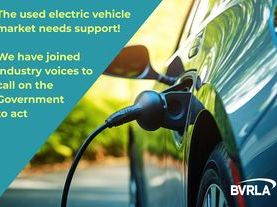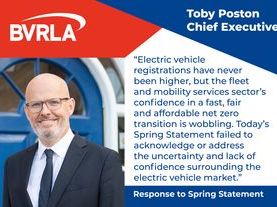The Government must support flexible, pay-as-you-go forms of motoring in order to improve the urban environment and encourage people to walk, cycle and use more public transport.
Cars in the City, a new report from the BVRLA and advisory firm Global Counsel, urges policymakers to consider a growing range of car use options, taking account of the different urban environments we travel in and the needs of those making journeys.
“Most visions of future urban mobility show leafy, virtually car-free streets full of people walking, cycling and using public transport,” said BVRLA Chief Executive Gerry Keaney.
“This is an exciting future, but how do we get there from today’s situation, where, even in London, the car remains the most popular single mode of travel1?”
“Our towns and cities need a more intelligent, sustainable use of the car. Promoting the use of car rental, car clubs and other flexible types of car use can make that happen.”
The BVRLA believes that this strategy can result in fewer vehicles sitting idle on the kerbside, more electric vehicles on the streets and more affordable transport options for families and businesses struggling with the impending cost of Clean Air Zone compliance.
Launched today at the association’s Future Mobility Congress event in Birmingham, the Cars in the City report provides some practical recommendations that local and national policymakers can use to start driving this behaviour change. These include:
- Providing more long-term certainty and financial support through transport funding and motoring taxation. These must give local authorities the budgets to invest in future mobility solutions and taxpayers the incentives to change their journey choices
- Supporting the roll-out of intelligent parking systems that can reduce congestion and provide more parking space for flexible car use providers
- Promoting the roll-out of Mobility Credits2 in Clean Air Zone areas, which will drive behaviour change and support those hit hardest by the need to upgrade their vehicles
Following on from the BVRLA’s recent Road to Zero Report Card, this latest report shares some consistent policy asks around the need for long-term transport planning and funding, improved EV charging infrastructure and a more supportive motoring tax environment.
“Our towns and cities are the economic heartland of the UK and are experiencing rapid population growth, which is why policymakers have made future urban mobility such a priority,” added Keaney.
“All our research demonstrates that ultra-low emission cars, used intelligently, are a vital part of delivering this vision.”
-ENDS-
Notes to editors:
1 Source: Travel in London report 11 p29
2 The BVRLA’s Mobility Credits Scrappage Scheme policy paper makes the case for a nationally funded, locally targeted vehicle scrappage scheme that offers a mobility credit in exchange for a household scrapping its older, polluting vehicle. This credit can be spent on more sustainable ‘pay-as-you-go’ private and public transport modes, including car and bike hire, car clubs, trams, buses and trains.




